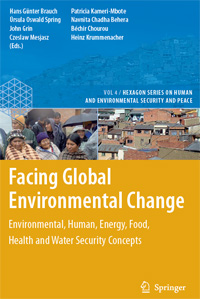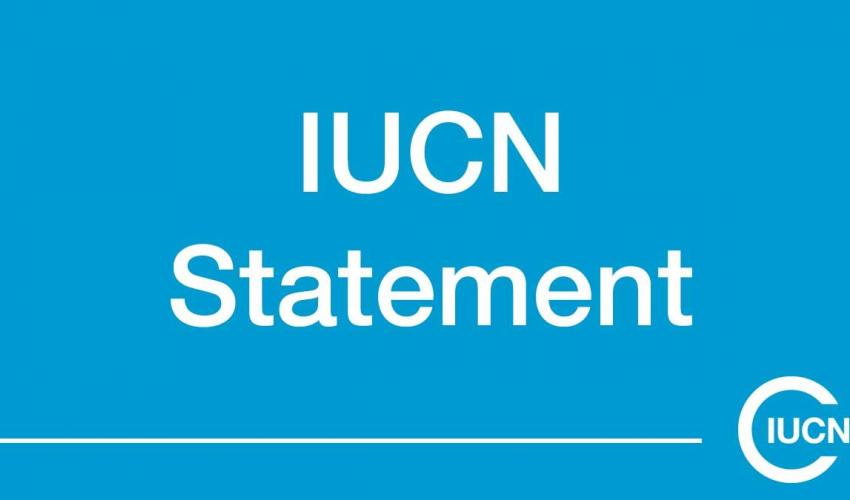Climate Change, Human Security and Violent Conflict - Challenges for Societal Stability
A major peer-reviewed scientific handbook on Climate Change, Human Security and Violent Conflict - Challenges for Societal Stability of more than 900 pages by Springer was written by 61 authors from 21 countries in Europe, Asia, Africa, North and Latin America and edited by:

Photo:
Jürgen Scheffran • Michael Brzoska • Hans Günter Brauch (CEESP Member) • Peter Michael Link • Janpeter Schilling (Eds.): Climate Change, Human Security and Violent Conflict - Challenges for Societal Stability . Hexagon Series on Human and Environmental Security and Peace, vol. 8 ( Heidelberg - Dordrecht - London - New York : Springer, 30 April 2012).
ISBN: 978-3-642-28625-4 (Print)
- State-of-the art assessment of research on climate change and security links
- Addresses a variety of topics within the climate change and security framework
- Combines research of 61 international experts
Severe droughts, damaging floods and mass migration: Climate change is becoming a focal point for security and conflict research and a challenge for the world's governance structures. But how severe are the security risks and conflict potentials of climate change? Could global warming trigger a sequence of events leading to economic decline, social unrest and political instability? What are the causal relationships between resource scarcity and violent conflict? This book brings together international experts to explore these questions using in-depth case studies from around the world. Furthermore, the authors discuss strategies, institutions and cooperative approaches to stabilize the climate-society interaction.
This handbook explores empirical and theoretical links between climate change, environment-tal degradation, human security, societal stability and violent conflict that could trigger cascading events and critical tipping points in climate-society interaction. Based on an extensive analysis of the securitization discourse, various conflict constellations are assessed, including water scarcity, food insecurity, natural disasters and mass migration. The security risks of climate are discussed in detail with regard to regional climate hot spots in Africa, the Middle East, Asia and the Pacific. Constructive approaches are examined for improving climate security through capacity-building for sustainable peace and cooperative policies leading to local and global governance structures.
With Forewords by Olusegun Obasanjo , former President of Nigeria; Connie Hedegaard , European Commissioner for Climate Action; Christiana Figures , Executive Secretary, UNFCCC; R.K. Pachauri , Director General, The Energy and Resources Institute (TERI), Chairman, Intergovernmental Panel on Climate Change (IPCC).
Contents : Part 1: Introduction. – Part II: Climate Change, Human Security, Societal Stability, and Violent Conflict: Empirical and Theoretical Linkages. – Part III: Climate Change and the Securitization Discourse. – Part IV: Climate Change and Migration. – Part V: Climate Change and Security in the Middle East . – Part VI: Climate Change and Security in Africa . – Part VII: Climate Change and Security in Asia and the Pacific. – Part VIII: Improving Climate Security: Cooperative Policies and Capacity-Building. – Part IX: Conclusions and Outlook.
- Details: http://www.afes-press-books.de/html/hexagon_08.htm where also pre-publication offers with major discounts (10-39%) can be found.
- Contents: http://www.afes-press-books.de/html/PDFs/Hexagon_8_IVZ.pdf
- Order form: http://www.afes-press-books.de/html/PDFs/HEX%20VIII_Flyer.pdf
- Additional information:http://www.springer.com/new+%26+forthcoming+titles+%28default%29/book/978-3-642-28625-4, All chapters will be individually available through Springerlink in May 2012.



